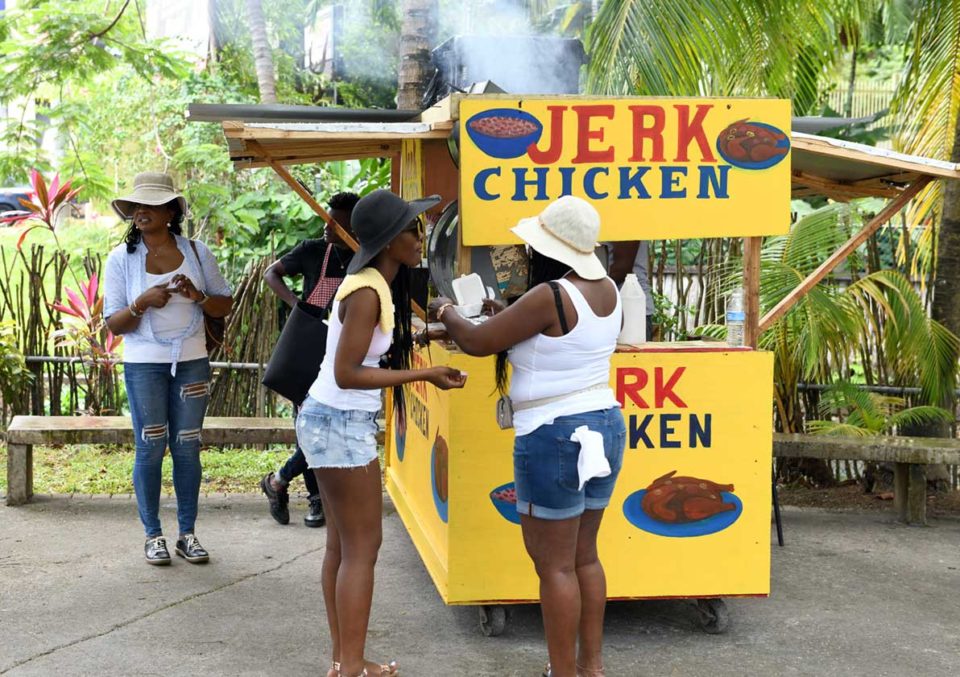JAMAICAGLOBALONLINE DISCUSSION FORUM
Jamaicans living overseas were greeted early in the new year with news that the government of Jamaica was well into the process of developing a strategic Jamaican diaspora development plan.
In outlining the dual purpose of the Plan, Minister of State in the Ministry of Foreign Affairs and Foreign Trade, Pearnel Charles Jnr who has responsibility for Diaspora Affairs, said that on the one hand the Policy was meant to provide the framework for the Diaspora contributing to Jamaica’s sustainable development. The other purpose was to assist members of the diaspora to address social and economic issues and to prosper where they reside worldwide.
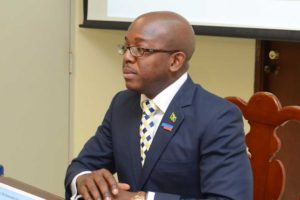
This latter statement of purpose was particularly welcomed because a constant complaint in the past has been that official diaspora engagement has been all about Jamaica’s development at home (which they support) and not about Jamaicans and their welfare abroad.
While the news of an impending policy has been generally well-received, some commentators have taken issue with the announcement that a White Paper on the Policy would be tabled in the Jamaican Parliament by June 2019, obviously in advance of the 8th biennial Diaspora Conference set for June 16-20 this year. For the benefit of readers, a WHITE paper is an official statement of policy which has been decided and is being presented for examination and debate before being ratified or made into law. It differs from a GREEN paper which usually presents ideas for discussion by interested individuals and organizations AFTER which it is followed by the WHITE paper which often reflects views and additional information coming out of those consultations.
In a January 3, 2019 post on his online blog The Ward Post, Ambassador Curtis Ward, described by one reader as ‘Jamaica’s Diaspora Diplomat’, expressed the view that the government appears to be about to make the same mistake as the previous government in developing a policy without broad consultations with diaspora communities in the UK, USA and Canada. He argues that the Jamaican diaspora is far too sophisticated to be handed a document intended to create a meaningful framework for engagement that is devoid of significant input by the diaspora in its creation. To put words in his mouth, the government is putting the cart before the horse and that is a non-starter.
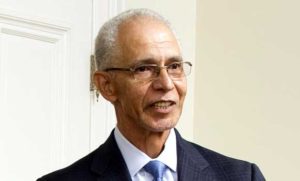
See Article – Requirements for Meaningful Consultations on Jamaica National Diaspora Policy
Is this really the case and if not, how extensive has the consultation been; and do members of the Jamaican diaspora feel the need to have more of a say in the development of a policy that is supposed to be about them?
Patrick Vernon British/Jamaican well-known for his Windrush activism writes:
“ The Windrush scandal has for many confirmed the connection of Jamaica as more dynamic but contradictory diaspora relationship. I would say four generations of people of Jamaican heritage since Windrush in 1948 in the UK have an affinity plus love and relationship with the country which is why the Jamaican brand and identity is powerful here in the UK. The scandal has strengthened this affinity but also exposes its vulnerability around when people have been deported illegally by the Home Office [an act] which needs to be ratified by the High Commissioner’s Office as part of any charter flight for removal. Deportees are treated as third class citizens when they arrive back home. A future policy needs to reflect some of these concerns.”
Jamaicaglobalonline offers its pages as a forum for discussion and input by Jamaicans living in foreign, overseas, abroad and on the island, specifically on the issue of the Disapora Policy – the process and methodology of its development and whether they feel the need to be more involved in its formulation. We also welcome proposals from readers of key elements that should be included in the policy.
As we all prepare for the 8th Biennial Disapora Conference (June 16-20) under the theme “Jamaica and the Diaspora: Building Pathways for Sustainable Development “ Jamaica Globalonline offers its support for this initiative and plans to play an active role in both disseminating information and providing updates about the conference, mid and post-conference reports as well as by initiating discussion on issues that could form part of the agenda ahead of , inside and outside the conference.
WHAT’S IN A NAME?
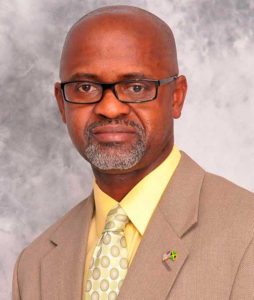 Let’s begin with the first issue. Are Jamaicans living outside the country happy with being lumped into one faceless group called ‘The Diaspora’? Irwine Clare, who has probably done more as an individual than any other Jamaican to support Jamaicans living overseas as well as at home, intensely dislikes being so designated. In an interview with jamaicaglobalonline last October, Clare expressed his unhappiness with the use of the term ‘diaspora’ to refer to Jamaicans living outside the country. To him the word “emphasizes a high trust deficit which can be reduced to an US in Jamaica and a THEM living outside the country.”
Let’s begin with the first issue. Are Jamaicans living outside the country happy with being lumped into one faceless group called ‘The Diaspora’? Irwine Clare, who has probably done more as an individual than any other Jamaican to support Jamaicans living overseas as well as at home, intensely dislikes being so designated. In an interview with jamaicaglobalonline last October, Clare expressed his unhappiness with the use of the term ‘diaspora’ to refer to Jamaicans living outside the country. To him the word “emphasizes a high trust deficit which can be reduced to an US in Jamaica and a THEM living outside the country.”
Article – IRWINE CLARE: LITTLE MAN WITH A BIG HEART, WORKING TIRELESSLY FOR JAMAICA AND JAMAICANS.
Dr Shirley Thompson OBE, the classical music composer and performer who lives in London similarly resents being described as part of the Jamaican diaspora. She is happier being described as British/Jamaican which she is, and of which she is intensely proud. In some ways the mass ‘diaspora’ tag is a way of robbing the British/Jamaicans of their identity in much the same way that British officials are now seeking to lump all non-whites into one mass of Black/Asian/Minorities/Ethnic under the acronym B.A.ME.
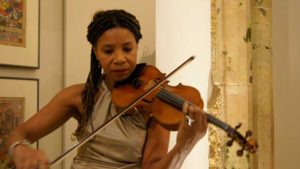
Every Jamaican has a relative or close Jamaican friend who lives abroad. For many, their entire family happens to live either in one community, or one country or even several countries around the world. When Jamaicans think and talk about their relatives living abroad do they ever see them as members of the ‘Jamaican diaspora? Never, because although they do not live on the island they are felt to be no less near or dear. We see them as Jamaicans – a son daughter, mother, friend schoolmate or just ‘one a we’. The University of the West Indies with tens of thousands of graduates spread all over the world has an alumni association; it has no ‘diaspora alumni association’ nor do the scores of high schools around Jamaica who have branches and chapters in major cities of the US, Canada and the UK. Yet we never hear reference to the KC Old Boys diaspora. They don’t see themselves as being part of a diaspora. They are simply KC old boys wherever they are. It should be no different for Jamaicans in general.
The fact is we have allowed the international media to define who we are by mimicking their racial and ethnically loaded descriptive terms. The Jews who are the original dispersed people whose status the word ‘Diaspora’ was coined to describe, are simply ‘Jews’ wherever in the world they are. Brits who were transported to Australia are not described as the ‘British diaspora in Australia’ and the Irish who represent the first voluntary mass migration to the USA are simply Irish Americans not the Irish diaspora in the USA. And we could go on and on with the Poles, Italians and even the Russians.
So why is it then that when we talk about Jamaicans who don’t happen to live on the island, we refer to them in official language as ‘the diaspora’ suggesting that somehow these people, our own family members, are different from us and have to be categorized using a term whose true origins few understand but which rolls sweetly off the tongue and is a convenient one to differentiate them from us?
Admittedly, the term ‘Diaspora’ is an idea, which works as a useful conceptual framework through which academics, and policy makers seek to make sense of, and capitalize on the benefits of the process of emigration. There is no question that in terms of the sheer numbers, concentrations, and the formation of new communities in their adoptive countries, Jamaicans abroad can be described as a ‘Diaspora’.
But do Jamaicans really constitute a true diaspora? In all cases, the term ‘diaspora’ carries a sense of displacement in which the population so described finds itself, for whatever reason, separated from its national territory and usually its people have a hope or at least a desire to return to their homeland at some point. That may be true for SOME first generation Jamaicans especially in the UK but certainly not true for MOST second and third generation Jamaicans anywhere. Diasporas have also been associated with loss and exile – two words that denote suffering and tragedy. That cannot be said to be true of Jamaicans who have left their native land willingly, for the most part, in search of a better life.
As we seek to create a new and sustainable policy that respects the needs of both the resident population on the island and those Jamaicans who have built lives elsewhere, a new descriptive word to replace ‘diaspora’ might help but it will not achieve that elusive goal of true ‘engagement’ that our political leaders claim to have been aiming for since they first came to appreciate the economic value of fellow Jamaicans living abroad. What is needed is a change of attitude among business and political leaders which must be reflected in any strategic ‘diaspora policy’; an attitude the sees Jamaicans wherever they live as part of an extended family not so different from the way we see our own individual families.
“Building Pathways for Sustainable Development “ is a laudable theme for the 8th Biennial conference but Jamaicans not living or intending to live in Jamaica may well ask “Development for whom?” and “What about us?”
Comments
“We simply need to think of these Jamaicans as still being Jamaicans. If a Jamaican in New York, London or Toronto gets up one morning, suck him teeth and seh ‘mi wah go home’ he should be able to pack all him jinbang and ship them home without any penalties or barriers……it should be no different from moving from St. Thomas to Hanover.”
- Henriques responding to the Ward Post
“I think we need a formal status as Diaspora Ambassador/Commissioner which reports to the Jamaican Parliament. This should be an independent role and not a political appointment but selected through a recruitment process.”
- Patrick Vernon O.B.E.
“My family owns business and hires people and do not feel secure right now to go home. What does that say to other members of the diaspora who would like to return and invest?”
- Marcia Ranglin-Vassell, Representative in the Rhode Island House, USA
“ Imagine if Global Jamaica was emancipated and given the right to elect and be elected. It could break the log jam of two-party competition.”
Anonymous
Please Post Your Thoughts and Comments in the comment section below
And please remember to share this article


